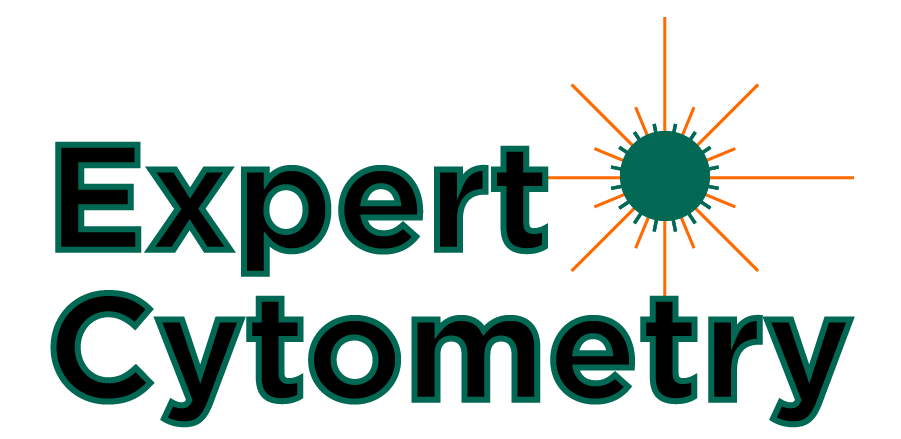How To Get A Flow Cytometry Job In 5 Steps

Flow cytometry is a powerful technique impacting both clinical and research.
If you’re looking for a career, flow cytometry technology can take you many places. An experienced flow cytometrist can find a job in a biotechnology company, in academia, or in a clinical setting.
Rather than focusing on specific career information, I would like to highlight one career option that has been very good for me since my transition from research scientist to core manager over a decade ago.
Core facilities, or Shared Resource Laboratories (SRL) as this Cytometry A paper made popular, represent an investment by institutions in resources and personnel.
Staff and directors working in SRLs have the advanced training and experience to support the researchers and research mission of the institution.
Working in an SRL is a different and very exciting career option for researchers who enjoy flow cytometry, enjoy working on many different projects, and enjoy working in scientific customer service.
That being said, starting out in an SRL can be daunting. Professionals of all kinds, or “users”, expect you to be an expert and will come to you for answers to all sorts of questions.
Some of these questions are easy to answer, some are not. As a result, a key to being successful in a flow cytometry career comes down to staying up-to-date on the latest information, best practices, top resources, and more.
When it comes to starting a career in flow cytometry, there are 5 strategies that will help you hit the ground running…

1. Learn all you can about flow cytometry technology.
Education is critical for making the most of any scientific technology. In flow cytometry, learning everything from how the instrument works, to gauging fluorochrome brightness, to troubleshooting problems with the instrument, with experiments, and with data analysis.
There are a large number of ways to get this education, some of which include:
- Vendor Training Courses — these are great for instrument specific training.
- Annual Training Courses — there are several courses around the world that are put on by regional societies. These courses are a great way to meet experts in the field, network with peers, and learn new techniques.
- Society Training — ISAC, CCS, and ESCCA have various training materials that are accessible to researchers. Check out the links to the societies above to learn more.

2. Get involved in regional users groups.
Finding all the local users of the technology can be challenging. Many areas have a regional cytometry group that hosts an annual meeting. This is where you can find local users and experts of the technology. If there isn’t one, consider starting one.
Meetings like the CYTO and ICCS annual meetings are good for networking while learning the latest and greatest in the field of flow cytometry.
3. Build your support network.
There will be questions and situations that will arise out of your realm of experience. A support network where you can ask questions and get answers in a timely fashion is critical, especially in the early stages of a career in an SRL.
There are a few very good resources that should be at the top of the list. These include:
- The Purdue Listserv — Over 20 years and still going strong. This is the ‘List’ for users of cytometry to ask questions and get answers. With a searchable database, it is an excellent place to learn about topics from sheath fluid, to isotype controls, and everything in between. The list is moderated, allowing for more focused conversation, while keeping things on topic.
- The Cytometry Google group — Started a few years ago, this group offers an alternative to the Purdue list. This group is growing and has a different feel than the Purdue list. The ease of uploading pictures, allowing vendor responses (and advertisements), and the power of Google (such as video ‘hangouts’) all offer another complementary way to get information.
- The Expert Cytometry Mastery Class — The Mastery Class is the world’s fastest growing and most successful flow cytometry training program. In addition to the Mastery Class offering an annual subscription to a 4-module training course and a live webinar series, members can get access to a private discussion group where on-going training and education topics are covered, where questions are answered in a matter of minutes, and where strong professional connection are made.
4. Identify a mentor and ask for support.
If you are new to the field, finding a mentor is a very useful step. Your mentor should be a senior scientist who can help you navigate the greater process of being a purveyor of technology.
This can include career advice, someone to turn to for help when solving difficult scientific or technical problems, someone to bounce ideas off of, and more. If they are at your institution, they can help with potential ‘political’ issues that will arise. As you move up the career ladder and become the manager or director of a facility, this support is very useful.

5. Travel to expand your network and expertise.
It costs money, it takes time, and you may have to jump through hoops to get approved at your institution, but it’s difficult to be a master of all techniques where you are, especially if resources or expertise are limited, and you may need to travel to learn what you need.
Sometimes, the better strategy is to go to another institution to learn a specific technique, rather than beat one’s head against the instrument trying to get things to work.
Becoming a member of an SRL is an exciting opportunity. There are many different ways to get into this field. To be successful in the field, seek out new educational opportunities and network with your peers. Flow cytometrists in the field are more than willing to talk and share their ideas and experiences while helping out a fellow cytometrist. A little effort can go a long way.
To learn more about how to get a flow cytometry job and to get access to all of our advanced materials including 20 training videos, presentations, workbooks, and private group membership, get on the Flow Cytometry Mastery Class wait list.

ABOUT TIM BUSHNELL, PHD
Tim Bushnell holds a PhD in Biology from the Rensselaer Polytechnic Institute. He is a co-founder of—and didactic mind behind—ExCyte, the world’s leading flow cytometry training company, which organization boasts a veritable library of in-the-lab resources on sequencing, microscopy, and related topics in the life sciences.
More Written by Tim Bushnell, PhD












